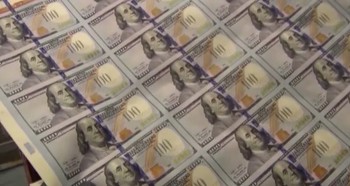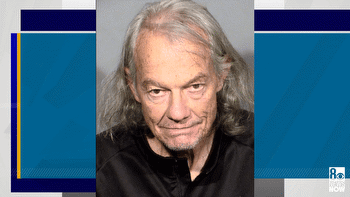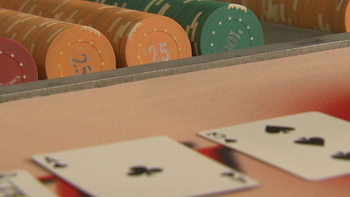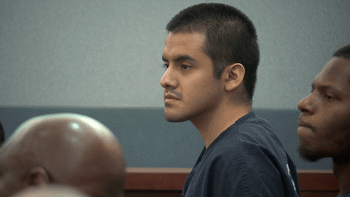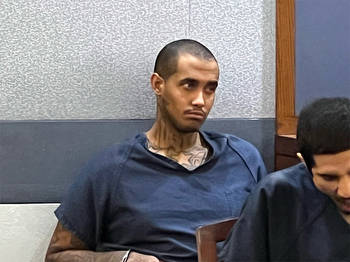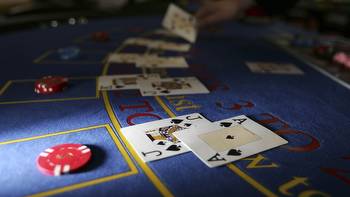Las Vegas 'life coach' accused of running Ponzi scheme to fund gambling addiction
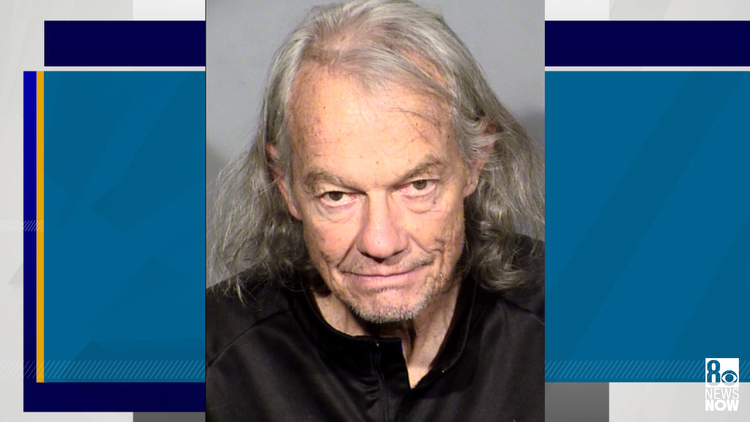
LAS VEGAS (KLAS) — A Las Vegas man is accused of running a Ponzi scheme where, instead of investing money in the stock market, he wagered millions of dollars at casinos, spending tens of thousands of dollars a day, investigators allege.
On Tuesday, Dec. 13, Las Vegas Metro police arrested Rodney Buckle, 65, on a warrant for several fraud-related charges, including securities fraud and theft, records showed.
Buckle’s codefendant, Warisra Stevens, pleaded guilty last year to securities fraud and theft conspiracy charges, records showed. A judge sentenced Stevens to a minimum of 19 months in prison.
Buckle, who ran businesses called “Rodd United, “Rodd U,” and “Rodd One,” called himself a “life coach and financial advisor,” investigators with the Nevada Secretary of State’s Office wrote in documents the 8 News Now Investigators obtained. He was not licensed with the state or federal government, investigators said.
The business was located near Flamingo Road and Arville Street, documents said. An online posting about the business, known in the post as Rodd University, said “Rodd University is a membership-based social club providing a platform for research and discussing topics ranging from current events to the stock market.”
“Buckle offered guidance and advice on [stock accounts], other stock investments and sports betting,” investigators said. “Buckle guaranteed investors weekly return on stocks and sports betting ranging from a 1% return to 52%.”
At first, Buckle took money from investors with checks. He then switched to a cash-only model, investigators said.
“Investors stated that Buckle showed them a spreadsheet on his computer listing their name, and the amount they invested with him,” investigators said, “The investment amounts ranged from anything to $100 to over $700,000.”
State investigators said Buckle then told his investors he needed more money “to create a ‘waterfall’ effect in order to generate ‘new’ money for investments,” they wrote in court documents. Investors took out loans, refinanced their homes and opened up credit cards in order to pay Buckle with the belief that they would receive their guaranteed returns.”
The investigator said she started her investigation when a couple complained to the state that they had not received a return on their investment. In 2015, Buckle promised the couple a 50% return on “bets he would place on their behalf,” the investigators said.
In 2017, after spending tens of thousands of dollars, the couple asked Buckle for some of the money back due to a recent cancer diagnosis and other bills, the investigators said.
The couple also learned the Securities and Exchange Commission had issued a judgment against Buckle in 1999, ordering him to pay $3 million in restitution. The filing claims Buckle “had sold over $3 million worth of unregistered securities while making false and misleading representations to investors.”
The SEC filing involves a company called Maven Enterprises, documents said. Officials with the SEC wrote in documents that Buckle lived in Las Vegas and “claims to be a professional gambler.”
Stevens, identified in documents as Buckle’s girlfriend, told investigators Buckle took out nearly $25,000 each week “for personal use and gambling,” documents said. “Stevens stated that Buckle funded her lifestyle and paid her bills. Stevens stated that the whole business was a Ponzi scheme.”
Stevens told investigators she believed the money was used to fund Buckle’s gambling addiction, investigators said. Another person told investigators Buckle “would gamble anywhere from $5,000 to $20,000 on a daily basis.”
Investigators later found Buckle placed $2.4 million worth of wagers at the sports book at the Westgate Hotel and Casino where he lost $76,000. The casino eventually banned Buckle, investigators said.
Buckle also had wagered $440,000 at the South Point casino and lost $434,000, investigators said.
In 2017, state investigators raided Buckle’s residence, seizing electronics and gaming tickets, among other items. A warrant for Buckle’s and Stevens’ arrest was issued in December 2019. It was unclear what led up to the 3-year lag for the arrest, though it appeared that Buckle self-surrendered.
A judge ordered Buckle held without bail. He was due in court in January.







